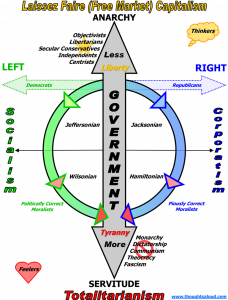 Notes on Democracy
Notes on Democracy
I think I will order H. L. Mencken’s 1926 book, “Notes on Democracy.” Perusing this book review, it seems like $15 well spent:
It’s no wonder it’s hard to get. There is more truth in these pages than most Americans are willing to face. Nor will there ever come a time when they will face them. For what Mencken delivers here is probably the most scathing attack on the idea of mass rule that has ever been written.
[…]
Mencken is known as the chief heretic of the American civic religion, and this book shows why. Your eyes will pop out at not only his dazzling prose but, and most especially, at the thoughts that he dares put in print, almost as a revolutionary act.Here is a slight sample, passages sampled nearly randomly:
What does the mob think? It thinks, obviously, what its individual members think. And what is that? It is, in brief, what somewhat sharp-nose and unpleasant childrern think. The mob, being composed, in the overwhelming main, of men and women who have not got beyond the ideas and emotions of childhood, hovers, in mental age, around the time of puberty, and chiefly below it. If we would get at its thoughts and feelings we must look for light to the thoughts and feelings of adolescents.
When the city mob fights it is not for liberty, but for ham and cabbage. When it wins, its first act is to destroy every form of freedom that is not directed wholly to that end. And its second is to butcher all professional libertarians. If Thomas Jefferson had been living in Paris in 1793 he would have made an even narrower escape from the guillotine than Thomas Paine made.
What the common man longs for in this world, before and above all his other longings, is the simplest and most ignominious sort of peace: the peace of a trusty in a well-managed penitentiary. He is willing to sacrifice everything else to it. He puts it above his dignity and he puts it above his pride. Above all, he puts it above his liberty. The fact, perhaps, explains his veneration for policemen, in all the forms they take—his belief that there is a mysterious sanctity in law, however absurd it may be in fact.
A policeman is a charlatan who offers, in return for obedience, to protect him ( a ) from his superiors, ( b ) from his equals, and ( c ) from himself. This last service, under democracy, is commonly the most esteemed of them all. In the United States, at least theoretically, it is the only thing that keeps ice-wagon drivers, Y. M. C. A. secretaries, insurance collectors and other such human camels from smoking opium, ruining themselves in the night clubs, and going to Palm Beach with Follies girls…Here, though the common man is deceived, he starts from a sound premise: to wit, that liberty is something too hot for his hands—or, as Nietzsche put it, too cold for his spine.
Politics under democracy consists almost wholly of the discovery, chase, and scotching of bugaboos. The statesman becomes, in the last analysis, a mere witch-hunter, a glorified smeller and snooper, eternally chanting “Fe, Fi, Fo, Fum!” It has been so in the United States since the earliest days. The whole history of the country has been a history of melodramatic pursuits of horrendous monsters, most of them imaginary: the red-coats, the Hessians, the monocrats, again the red-coats, the Bank, the Catholics, Simon Legree, the Slave Power, Jeff Davis, Mormonism, Wall Street, the rum demon, John Bull, the hell hounds of plutocracy, the trusts, General Weyler, Pancho Villa, German spies, hyphenates, the Kaiser, Bolshevism. The list might be lengthened indefinitely; a complete chronicle of the Republic could be written in terms of it, and without omitting a single important episode.
It was long ago observed that the plain people, under democracy, never vote for anything, but always against something. The fact explains in large measure, the tendency of democratic states to pass over statesmen of genuine imagination and sound ability in favour of colorless mediocrities. The former are shining marks, and so it is easy for demagogues to bring them down; the latter are preferred because it is impossible to fear them.
How could I pass it up? The man actually says what he thinks, seemed to do thinking rather well, and ever forces one to examine one’s prejudices. 🙂 â—„Daveâ–º

